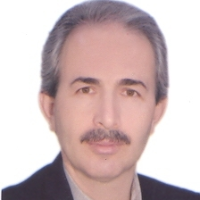Ali Shariati and His Separation from the Faculty of Letters and Humanities to the Closing of Hosseinieh Ershad: A Study through Oral History
Author(s):
Article Type:
Research/Original Article (دارای رتبه معتبر)
Abstract:
As the most prominent theorist of the 1979 Islamic Revolution, Ali Shariati lived a life which involves many untold aspects to date. His life embraced a considerably vast pubic arena, as he intended. Shariati had an exile-like separation from Mashhad Faculty of Letters and Humanities; subsequently, he settled in Hosseinieh Ershad. These events have been important, yet vague incidents in his life according to his friends and rivals. Using the Grounded Theory and data collected from oral interviews and SAVAK documents, the present study attempts to consider the resulting sensitive keywords as ‘signs’. Next, these signs are used to achieve ‘categories’ and finally, offer a set of ‘classes’ regarding the life of Shariati during such an important stage of his life. This period of his life should be understood under four major classes which include: a) the paperwork regarding the end of Shariati’s presence in the faculty; b) the beginning of his connection to Hosseinieh Ershad; c) lecturing in Hosseinieh Ershad; and d) his retirement from the faculty and the closing of Hosseinieh Ershad.
Keywords:
Language:
Persian
Published:
Journal of Social Sciences, Volume:19 Issue: 2, 2023
Pages:
99 to 119
https://magiran.com/p2536859
مقالات دیگری از این نویسنده (گان)
-
Examining the role of intellectuals in the political-social developments of the Qajar era (with an approach to the actions of Abbas Mirza, Amir Kabir, Mirza Hossein Khan Sepahsalar and Amin al-Doulah)
Mohammad Esmaili, Abolhasan Mobayen *, Omid Sepehri Rad
Journal of Contemporary Socio-Political Developments in Iran, -
ساختارمندی معماری مساجد سنتی خراسان بزرگ در تمدن اسلامی بر مبنای تحلیل عوالم سه گانه در عصر سلجوقیان تا صفویان (قرن ششم تا یازدهم)
محبوبه زمانی*،
فصلنامه تاریخ فرهنگ و تمدن اسلامی، پاییز 1402 -
Analyzing the role of the German government in creating military industries and arming the army during the Pahlavi period
Ebrahim Emadi, *, Abolhasan Mobayen
Journal of Contemporary Socio-Political Developments in Iran,


